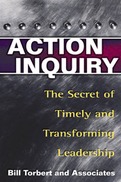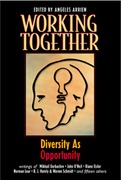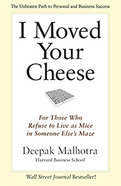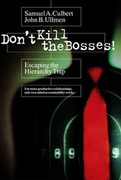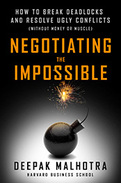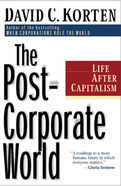2004
- Offers a powerful method that leaders in organizations of all types can use to increase the timeliness and effectiveness of their actions
- Provides numerous real-world examples of action inquiry in action
- Includes exercises individuals and organizations can use to begin practicing action inquiry
Bill Torbert and associates illustrate how individuals and organizations can progress through more and more sophisticated "action-logics" -- strategies for analyzing the world and reacting to it -- until they will eventually be able to practice action inquiry continually. Offering action inquiry exercises at the end of the chapters, the book moves from junior managers beginning to practice action inquiry through CEO's transforming whole companies, to world leaders transforming whole countries, as exemplified by Czech president Vaclav Havel. Through short stories of leadership and organizational transformations, this groundbreaking book illustrates how action inquiry increases personal integrity, relational mutuality, company profitability, and long-term organizational and environmental sustainability.
2001
A stellar list of contributors bring a variety of perspectives to establish one central theme: diversity is an advantage to be utilized, not a problem to be solved. Themselves representing a wide range of cultural, national, and vocational perspectives, the contributors examine how diversity creates new possibilities for working together in our projects, our organizations, and our lives. Working Together reveals diversity as a rich resource to meet the challenges of our changing times, an unparalleled opportunity to bring together a multiplicity of gifts for a common purpose.
- A stellar array of contributors includes such well known figures as Mikhail Gorbachev, Riane Eisler, and Norman Lear
- Helps individuals, communities, and organizations to recognize diversity as a rich resource as opposed to an obstacle to growth
2011
I Moved Your Cheese reveals what is possible when we finally discard long-held and widely accepted assumptions about how we should live our lives. After all, achieving extraordinary success, personal or professional, has always depended on the ability to challenge assumptions, reshape the environment, and play by a different set of rules—our own. But rejecting deeply ingrained beliefs is not easy. As Zed explains, “You see, Max, the problem is not that the mouse is in the maze, but that the maze is in the mouse.”
- The first serious challenge to the iconic bestseller Who Moved My Cheese?
- A thoughtful critique written by a Harvard Business School professor and bestselling author
- Uses the same playful and highly accessible fable format to encourage readers to examine their deeply held assumptions and to take control of their own destinies
- Click here for Press Release
With more than twenty-five million copies in print, Who Moved My Cheese? has become a phenomenon. It does offer some reasonable advice about adapting to change. Its certainly true that some of the events shaping our lives are beyond our control, and instead of struggling against them we must adapt and move on. But for all its good intentions, it ultimately advises us to unquestioningly accept our circumstances without exploring any possible alternativeslike mice in a maze mindlessly chasing after cheese.
I Moved Your Cheese takes a different point of view and offers an alternative approach. Harvard Business School professor and bestselling author Deepak Malhotra tells an inspiring story about a new generation of mice who begin to challenge assumptions and ask important questions. Rather than just accepting their situation and dutifully chasing the cheese, Max, Zed, and Big begin looking deeper, examining and reassessing what theyve been told are their limitations, and set out to chart a new course.
Innovation, entrepreneurship, creativity, problem solving, and business growth as well as personal growth depend on the ability to challenge accepted notions, reshape the environment, and play by a different set of rules: our own. We are not powerless to change our circumstances. We can control our destiny. By ana- lyzing our assumptions about the limitations we seem to face, we can, like Max, Zed, and Big, discover how to overcome them. But first we need to understand the ways we unknowingly hold ourselves back. As Zed explains to Max, The problem is not that the mouse is in the maze but that the maze is in the mouse.
Don't Kill the Bosses! reveals the "trap" created when people fail to differentiate between the positives of hierarchical structure and the negatives of hierarchical relationships. Far from being opposed to hierarchy, the authors believe strongly that an accurate and cleanly defined organization chart is vital. But they show how to implement an alternative model of hierarchy: two-sided accountability. Drawing on case studies from their consulting practice, Culbert and Ullmen show how this new model leads to a freer flow of information, more creative problem-solving, and quicker response to changing conditions.
Unlike other books that acknowledge boss/subordinate relationships as a systematic, continuing problem and offer skill development suggestions for dealing with it, Don't Kill the Bosses! tells how to think about the problem in a way that will enable readers to understand the steps they need to take to change things. It diagnoses what's missing in boss/subordinate relationships, connects what's wrong with them to personal and organizational outcomes, and defines the whole new mentality required to make them work successfully.
- Offers a revolutionary approach to management that preserves the positive aspects of hierarchical structures while overcoming the warped communications and poor morale that often plague them
- Provides the practical means for achieving open and above-board boss/subordinate give-and-take
- Uses case studies from the authors' consulting practice to show how their approach leads to honest communication, authentic teamwork, esprit de corps, and greater accountability
Malhotra identifies three broad approaches for breaking deadlocks and resolving conflicts, and draws out scores of actionable lessons using behind-the-scenes stories of fascinating real-life negotiations, including drafting of the US Constitution, resolving the Cuban Missile Crisis, ending bitter disputes in the NFL and NHL, and beating the odds in complex business situations. But he also shows how these same principles and tactics can be applied in everyday life, whether you are making corporate deals, negotiating job offers, resolving business disputes, tackling obstacles in personal relationships, or even negotiating with children.
As Malhotra reminds us, regardless of the context or which issues are on the table, negotiation is always, fundamentally, about human interaction. No matter how high the stakes or how protracted the dispute, the object of negotiation is to engage with other human beings in a way that leads to better understandings and agreements. The principles and strategies in this book will help you do this more effectively in every situation.
• From the bestselling author of When Corporations Rule the World
• An extensively researched, powerfully argued, eye-opening critique of how today's corporate captialism is destroying the things of real value in the world-like cancer destroys life
• Portrays a hopeful future-alternatives to a corporate-dominated and money-ruled world-in showing how to resore health to markets, democracy, and every day life
• Offers practical suggestions for individuals who want to contribute to the process of change
• Co-published with Kumarian Press
There is a deep chasm between the promises of the new global capitalism and the reality of social breakdown, spiritual emptiness, and environmental destruction it is leaving in its wake. In this important book, David Korten makes a compelling and well-documented case that capitalism is actually delivering a fatal blow not only to life, but also to democracy and the market. Among his startling ideas:
Capitalism is a pathology that commonly afflicts market economies in the absence of vigilant public oversight. Since the economy internal to a corporation is a planned economy, the current consolidation of economic control under a handful of global corporations is a victory for central planning-not the market economy. The alternative to the new global capitalism is a global system of thriving, healthy market economies that function as extensions of healthy local ecosystems to meet the livelihood needs of people and communities.
Radical as such proposals may seem, they actually reflect processes that are steadily gaining momentum around the world. The Post-Corporate World provides a vision of what's needed and what's possible, as well as a detailed agenda for change. Korten shows that to have a just, sustainable and compassionate society, concentrated absentee ownership and footloose speculative capital as embodied in the global, for-profit public corporation must be eliminated in favor of enterprises based on patient, rooted, stakeholder ownership limited to those who have a stake in the firm as a worker, supplier, customer, or member of the community in which it is located.
Korten outlines numerous specific actions to free the creative powers of individuals and societies through the realization of real democracy, the local rooting of capital through stakeholder ownership, and a restructuring of the rules of commerce to create "mindful market" economies that combine market principles with a culture that nurtures social bonding and responsibility.
Like Korten's previous bestseller, When Corporations Rule the World, this provocative book is sure to stimulate national dialogue and debate and inspire a bevy of grassroots discussions and initiatives. The Post-Corporate World presents readers with a profound challenge and an empowering sense of hope.


